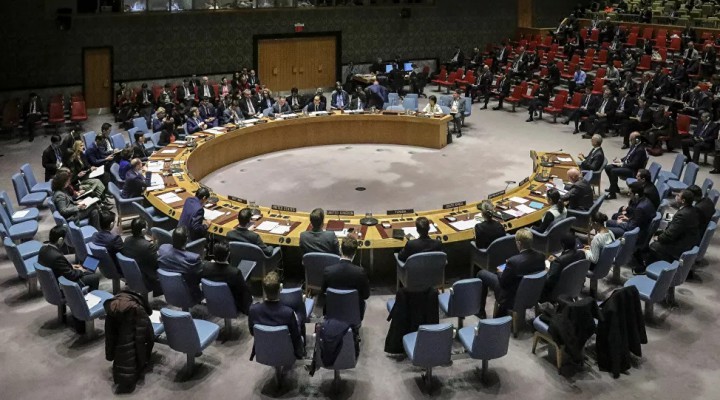Can US Abide By Law?

Russian President Vladimir Putin has called for a summit of the five permanent members of the UN security council to discuss lowering international tensions and avoidance of conflict.
It’s certainly a good idea and one that is timely and pertinent given the heightened concerns about deteriorating relations between three members of the council: the US on one hand, and Russia and China on the other.
US President Donald Trump has expressed an interest in attending the summit, as have other members of the security council.
The exchange between leaders will make for interesting viewing, to say the least. Because surely the top question on the summit agenda should be: can all nations simply abide by international law as a first essential step towards reducing tensions and potential conflict?
No exceptions, no “ifs” and no “buts”. Just absolute, unqualified respect for international law as set out primarily in the UN Charter. That charter forbids acts of aggression and mandates respect for the sovereignty of all nations.
If we apply that basic standard, then the US is unquestionably in violation of international law on numerous counts.
Just this week alone provides clear evidence. First, there are reports of US seizing Iranian oil shipments bound for Venezuela. President Trump has claimed that the fuel consignment has been impounded in Houston, Texas. If the reports are confirmed, the seizure amounts to modern-day piracy on the high seas.
Washington supposes justification for such an act because it has imposed sanctions on both Venezuela and Iran. But those sanctions are themselves illegal and are in violation of the UN charter. The United States’ use of extra-territorial sanctions is a form of aggression and violation of foreign sovereignty. Dozens of other nations are similarly subjected to sanctions invoked unilaterally and unlawfully by the US, including Russia and China. It does not matter what “justification” Washington claims to have for such measures. They are unlawful under international law. Only the UN security council has the authority to mandate international sanctions.
Therefore, the purported seizure of Iranian oil to Venezuela is tantamount to theft by the US.
But what else is new? The Trump administration, like the Obama one before, is engaged in stealing Syria’s oil from its illegal military occupation in the eastern region of that country. This is while Syria is being sanctioned illegally by the US (and the European Union.) Again, it does not matter what Washington’s “justification” is for its military occupation (“fighting Islamic State”). The fact is the US has invaded that country illegally without a mandate from the security council or from the sovereign government in Damascus. In short, the US is committing aggression and war crimes against Syria.
A third example are the provocative war maneuvers being conducted by the US in the South China Sea. This week’s exercises are reportedly more intensive than usual and serving to magnify tensions with China. Those tensions are already torrid given the way the Trump administration is slapping trade sanctions on Beijing over allegations regarding Hong Kong and Xinjiang (both internal sovereign issues), as well as Washington’s forced selling of Chinese telecoms businesses in the US. The latter could arguably be seen as another case of American piracy.
We could go on: US sanctions against Europe and Russia over their legitimate Nord Stream 2 gas project is arguably another example of piracy, subverting economic relations and international law. Or how about seven decades of heartless sanctions against Cuba simply because it is “socialist”; sanctions which the whole world has repeatedly voted against as unlawful on several occasions at the UN General Assembly.
Let’s face it: lamentably, a summit of the UN security council members is hardly going to be productive in terms of reducing geopolitical tensions and avoiding conflict. That’s because the biggest rogue state on the planet is the United States which has a congenital problem with simply abiding by international law.
If one state alone – the US – could somehow behave lawfully and in accordance with the UN charter, most of the world’s tensions would immediately cease.
This week the forthcoming US presidential election clarified the two choices on offer to American voters: either Trump and Pence, or Biden and Harris. The damnable thing is: no choice will result in America becoming a law-abiding state. Something far more profound in US politics needs to happen for that to change.
https://sputniknews.com/columnists/202008151080179300-can-us-abide-by-law/
 TheAltWorld
TheAltWorld 
0 thoughts on “Can US Abide By Law?”